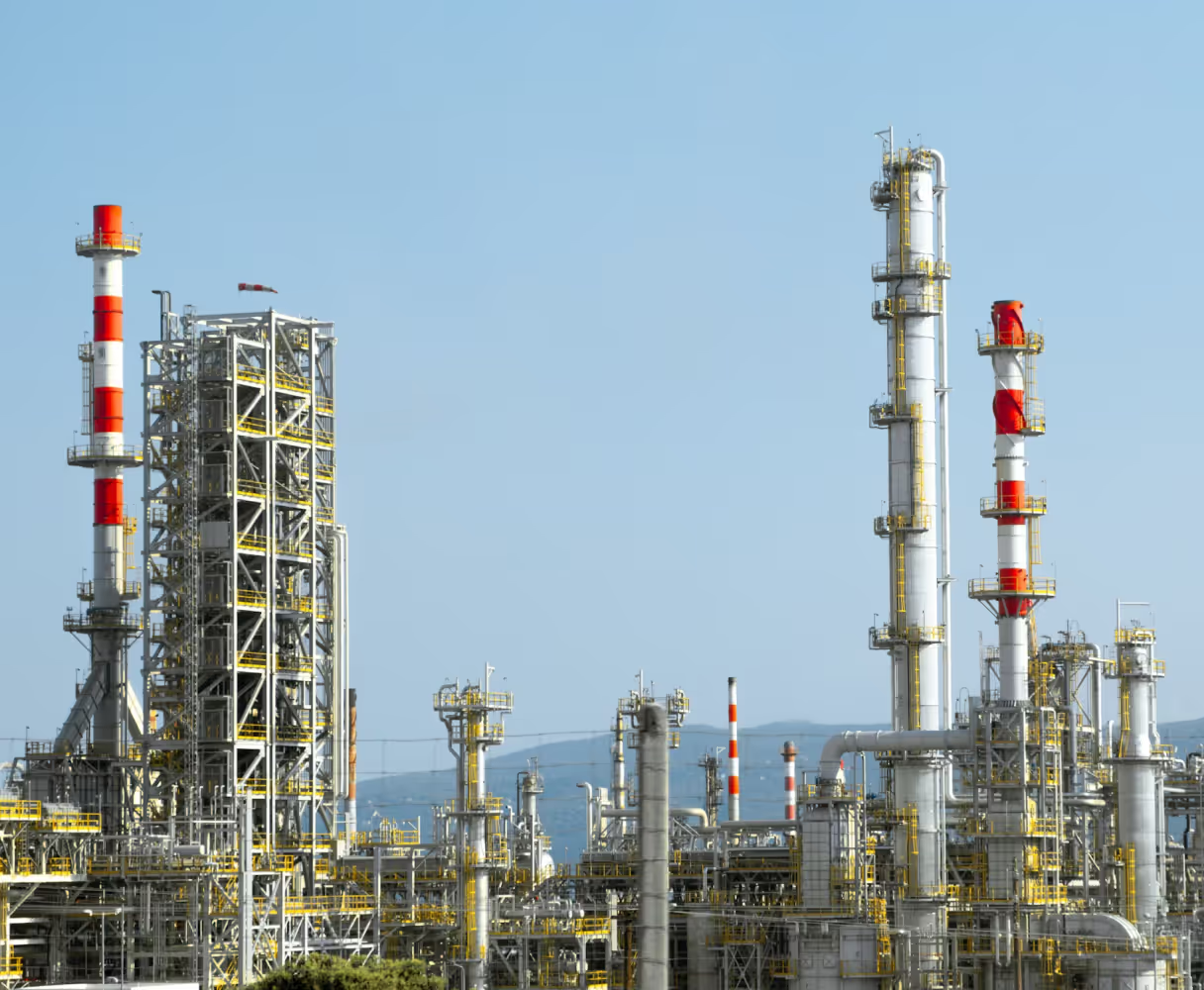Chemicals & Polymers
With around 460,000 direct and over 500,000 indirect employees, the chemical industry plays a powerful role in strengthening Germany as an industrial hub.






Overview of the chemical & plastics sector
The chemical and plastics industry is a cornerstone of industrial value creation in the DACH region. It supplies essential materials for nearly all manufacturing processes — from basic chemicals and polymers to specialty chemicals and plastic components. With approximately €230 billion in revenue in Germany and over 500,000 employees, it ranks among the country’s largest industrial employers, generating around 10% of total industrial value added. Roughly two-thirds of its revenue comes from exports. Predominantly owner-managed and highly specialized companies ensure technological differentiation, close customer relationships, and strong positions in high-value niche markets.

Key Insights
The dynamics of the chemical and plastics industry are increasingly shaped by structural and technological shifts. At the core lies growing energy and cost pressure, forcing companies to make production processes more efficient and reduce dependence on fossil resources. As a result, processes such as raw material recovery, material reduction, and circular production are gaining importance and becoming integral components of industrial value creation.
At the same time, the role of many companies within value chains is changing. Traditional supplier relationships are evolving into development partnerships with customers. Chemical companies are no longer merely delivering materials but providing technical solutions tailored to specific material properties, efficiency targets, or sustainability goals.
This transformation is shifting value creation from volume-driven raw material production toward a knowledge- and technology-driven industrial sector that is deeply intertwined with the innovation cycles of its customer industries.
The structural pressures on the chemical and plastics industry are substantial. Energy and raw material costs remain consistently above the global average compared to other regions, putting energy-intensive production sites under strain. Access to critical feedstocks and gas supplies continues to pose a risk, particularly since the loss of low-cost energy imports.
At the same time, tightening regulatory requirements - including REACH, PFAS restrictions, and ESG reporting - are increasing administrative burdens and raising entry barriers for smaller companies. Competitors from resource-rich regions are leveraging this situation to capture market share in higher-margin segments.
For mid-sized companies, this creates strategic constraints: investment decisions carry greater risk, M&A transactions become more complex, and location strategies are increasingly influenced by access to energy and logistics infrastructure. Overall, the market remains volatile, capital-intensive, and heavily regulated — an environment in which entrepreneurial adaptability is becoming the key prerequisite for long-term success.
The valuation of chemical and plastics processing companies is determined by three key dimensions: earnings quality, strategic positioning, and transformation capability. Critical factors include stable EBITDA margins, strong cash flow generation, and a resilient, well-diversified customer base with low concentration risk.
Companies with access to high-growth end markets - such as medical technology, electronics, or sustainable materials - and those possessing proprietary technologies, patents, or specialized process know-how achieve higher valuations.
Sustainability and regulatory resilience are becoming increasingly important: investors reward companies that have demonstrably advanced decarbonization, effectively manage ESG risks, and can verify energy efficiency improvements.
Valuation multiples are driven less by short-term volume growth and more by long-term competitiveness. Premium valuations are achieved where technological differentiation, high entry barriers, and strong strategic management capability intersect.
M&A Perspective
The economic significance of the chemical and plastics industry extends far beyond its own production. Chemical and polymer products are a fundamental enabler of innovation across nearly all industrial sectors — from electromobility and construction to energy and medical technology. Advances in materials development, energy efficiency, and product performance in these industries depend directly on progress in chemistry and polymer engineering.
At the same time, the sector ranks among the most capital- and energy-intensive areas of industry. Its competitiveness is therefore heavily influenced by energy prices, raw material availability, and regulatory conditions.
In its dual role between basic materials and high technology, the sector serves both as an industrial backbone and as an innovation platform — making it indispensable for the competitiveness and long-term viability of the DACH region’s manufacturing base.

What is my company worth?
With our valuation tool, you receive a solid initial assessment. Our experts are available for deeper advisory support.

An initial conversation brings more clarity than extensive research.
Are you looking for a partner who understands you, stands firm in negotiations, and goes the extra mile for you throughout the entire process?
Then schedule a non-binding call with the MIND executive team.



.svg.avif)



















